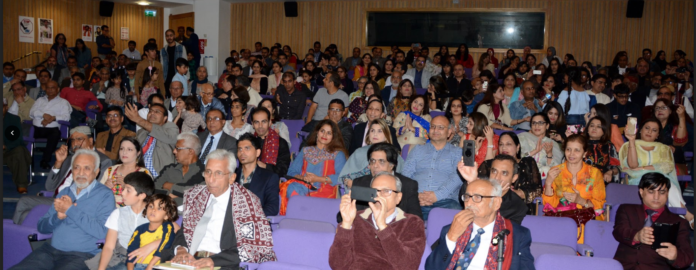LONDON–The current situation in Sindh state of Pakistan is marked by continuous human rights violations and an environment of fear and oppression, World Sindhi Congress said in a statement.
“The Sindhi people are facing immense violence at the hands of Pakistani state security agencies. Enforced disappearances and extrajudicial killings of political and human rights activists have risen steadily,” the statement said. “The inconsiderate implementation of the China Pakistan Economic Corridor (CPEC) continues. It is clear that Sindhi people will be disproportionally and negatively impacted by these projects, including infringement on their lands, misappropriation of their resources, and undermine their survival.”
These issues were the focus of the 31st International Conference on Sindh held at the University of Westminster, Harrow Campus in London, on September 28th, 2019. The conference is organized annually by the World Sindhi Congress (WSC), a human rights advocacy group, based in the UK, USA, Canada, and Sindh.
More than 200 delegates attended the conference from different parts of UK, EU, USA, Canada, India, Afghanistan, Balochistan and Sindh.
The panel on Building Bridges and Community Alliances marked the beginning of the conference, The panel brought to notice the marginalization of Balochi;, Pashtun and Siraiki. Among the eminent panelists were Dr. Naseer Dashti, Baloch Human Rights Council, UK; Dr. Zakir Sadat, Afghan Unity Movement, UK; and Shafi Naqi Jamie, a veteran Journalist.
The session on Democracy, Human Rights and National Self Determination brought a range of voices from across continents.
The journalist in exile Taha Siddiqui, now based in France, spoke of the steadily increasing censorship of media and dissenting voices in Pakistan. Academic Rita Kothari from India spoke of re-imagining cartography of Sindh as one defined by language and memory. Her research has been based on the Sindhi diaspora in India.
One of Sindh’s most experienced commentator, leader, activist Mr. Rochi Ram stressed upon negotiation and dialogue as the need of the hour. Leading activist and intellectual Khalique Junejo recalled how Pakistan had failed by its own claims at the time of its making.
“The 1940 resolution which formed the foundational document of the state of Pakistan mentions that constituent units (including Sindh) should be autonomous and sovereign, while in practice today Pakistan has turned to be worst type of centralized government,” the statement said.














